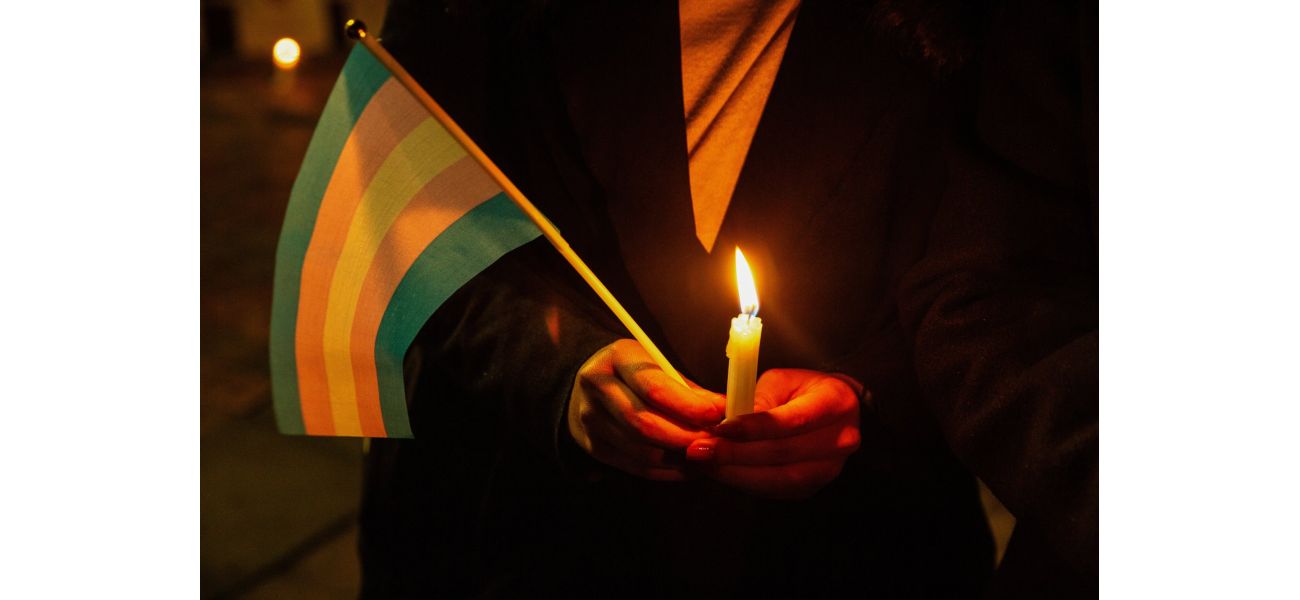Over 5,000 transgender individuals have been killed since 2008.
Questioning the duration of violence.
November 20th 2024.

As the world prepares to observe Transgender Day of Remembrance, a somber reality is being brought to light. At least 5,000 trans individuals have been killed since 2008, with the numbers only increasing each year. This raises the question, when will the violence against the trans community finally come to an end?
According to Trans Europe and Central Asia, 350 trans, non-binary, and gender-diverse people lost their lives between October 2023 and September 2024 alone. The majority of these murders occurred in Latin America and the Caribbean, with Brazil leading the way with 30% of the total cases. Shockingly, 94% of the victims were trans women or those assigned male at birth but identify as more feminine than masculine. The majority were also people of color, with a 14% increase in Black and Brown trans individuals compared to last year. It's disheartening to note that almost half of the victims were also sex workers.
In a tragic turn of events, at least 15 of the trans individuals killed were under the age of 18. This year has been the third-most deadly for the trans community since record-keeping began in 2008. TGEU's Trans Murder Monitoring project has been tracking these numbers, with 375 killings in 2021 and 369 in 2017 being the only higher death tolls.
As we observe Transgender Day of Remembrance, TGEU's executive director, Ymania Brown, shared a powerful statement. "This year, we are faced with the heartbreaking milestone of 5,000 documented murders since the start of the Trans Murder Monitoring project. As a global community, we are tired of repeatedly asking when this violence will end. We can no longer afford to wait."
However, these numbers only paint a partial picture of the violence and discrimination faced by trans individuals globally. The lack of reliable data and underreporting of incidents make it difficult to fully understand the extent of this issue. In many cases, the police, news outlets, and even the victim's family may misgender or deadname them, leaving it up to organizations like TGEU to gather information and verify the victim's gender identity.
The rise in anti-trans movements has been attributed to the increase in violence against the trans community. TGEU notes that there has been a surge in online and offline hate speech and hate crimes, often fueled by political and religious leaders and public figures. This is further exacerbated by the lack of strong hate crime legislation and the spread of misinformation by social media platforms.
Unfortunately, the danger faced by trans individuals goes beyond hate crimes. Transphobia can also make it challenging to find housing, employment, and access healthcare, especially in countries with restrictive laws. This can often lead to homelessness and involvement in sex work, putting trans people at an even higher risk.
Looking at the killings documented by TGEU in the past year, almost half were fatal shootings, with over a quarter occurring in public spaces and almost a quarter in the victim's own home. In light of these alarming statistics, Brown urges governments to take immediate action to address the surge in anti-trans hate speech and attacks. "Our lives depend on it," she adds. It's time for a united effort to break this cycle of violence and create a safer world for the trans community.
According to Trans Europe and Central Asia, 350 trans, non-binary, and gender-diverse people lost their lives between October 2023 and September 2024 alone. The majority of these murders occurred in Latin America and the Caribbean, with Brazil leading the way with 30% of the total cases. Shockingly, 94% of the victims were trans women or those assigned male at birth but identify as more feminine than masculine. The majority were also people of color, with a 14% increase in Black and Brown trans individuals compared to last year. It's disheartening to note that almost half of the victims were also sex workers.
In a tragic turn of events, at least 15 of the trans individuals killed were under the age of 18. This year has been the third-most deadly for the trans community since record-keeping began in 2008. TGEU's Trans Murder Monitoring project has been tracking these numbers, with 375 killings in 2021 and 369 in 2017 being the only higher death tolls.
As we observe Transgender Day of Remembrance, TGEU's executive director, Ymania Brown, shared a powerful statement. "This year, we are faced with the heartbreaking milestone of 5,000 documented murders since the start of the Trans Murder Monitoring project. As a global community, we are tired of repeatedly asking when this violence will end. We can no longer afford to wait."
However, these numbers only paint a partial picture of the violence and discrimination faced by trans individuals globally. The lack of reliable data and underreporting of incidents make it difficult to fully understand the extent of this issue. In many cases, the police, news outlets, and even the victim's family may misgender or deadname them, leaving it up to organizations like TGEU to gather information and verify the victim's gender identity.
The rise in anti-trans movements has been attributed to the increase in violence against the trans community. TGEU notes that there has been a surge in online and offline hate speech and hate crimes, often fueled by political and religious leaders and public figures. This is further exacerbated by the lack of strong hate crime legislation and the spread of misinformation by social media platforms.
Unfortunately, the danger faced by trans individuals goes beyond hate crimes. Transphobia can also make it challenging to find housing, employment, and access healthcare, especially in countries with restrictive laws. This can often lead to homelessness and involvement in sex work, putting trans people at an even higher risk.
Looking at the killings documented by TGEU in the past year, almost half were fatal shootings, with over a quarter occurring in public spaces and almost a quarter in the victim's own home. In light of these alarming statistics, Brown urges governments to take immediate action to address the surge in anti-trans hate speech and attacks. "Our lives depend on it," she adds. It's time for a united effort to break this cycle of violence and create a safer world for the trans community.
[This article has been trending online recently and has been generated with AI. Your feed is customized.]
[Generative AI is experimental.]
0
0
Submit Comment





